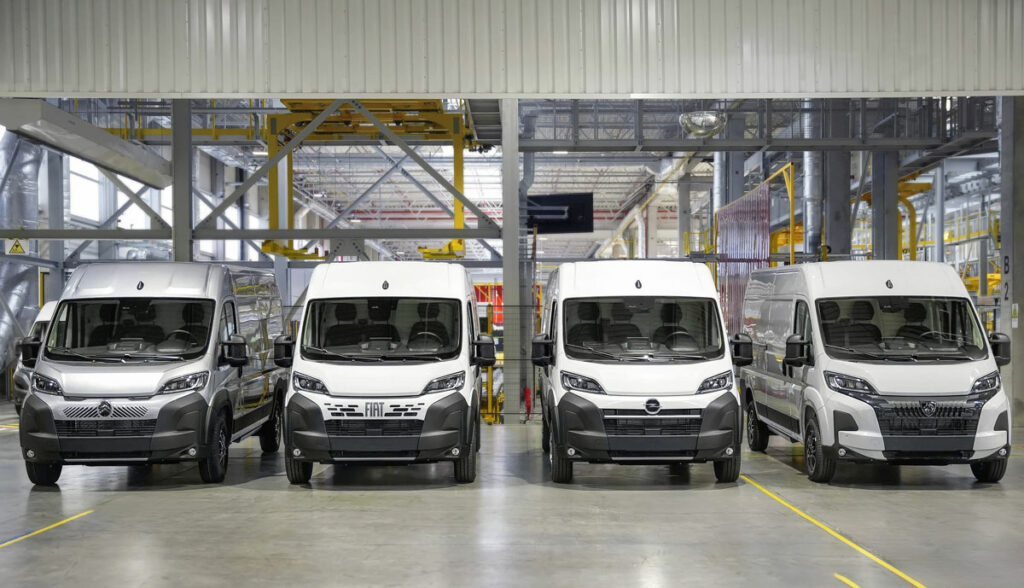Stellantis initiates mass production of medium and large vans at its Hordain (France) and Gliwice (Poland) plants. This expansion aligns with the company’s commitment to forefront hydrogen technology, showcasing its dedication to zero-emission commercial vehicles.
The fuel cell variants of these commercial vehicles target intensive customer use, leveraging technology from the battery-electric counterparts. Stellantis emphasizes the advantages of short refueling times and no loss of payload capacity for these hydrogen-powered vans.
For medium-sized vans, the second-generation fuel cell system delivers a range of up to 400 kilometers and a refueling time of less than four minutes. Meanwhile, large vans equipped with fuel cell technology boast a range of up to 500 kilometers and a rapid refueling time of five minutes.
The production lineup includes eight fuel cell hydrogen versions of midsize and large vans, featuring models such as Citroën ë-Jumpy and ë-Jumper, Fiat Professional E-Scudo and E-Ducato, Opel/Vauxhall Vivaro and Movano, Peugeot E-Expert and E-Boxer.
Stellantis emphasizes that hydrogen fuel cell technology is pivotal in its roadmap for zero-emission powertrains. Since 2023, the company has held a one-third equal share in Symbio, a leading hydrogen technology company with a global presence in Europe and the United States. This strategic partnership positions Stellantis at the forefront of sustainable transportation, contributing to the ongoing evolution of clean and efficient commercial vehicles.





